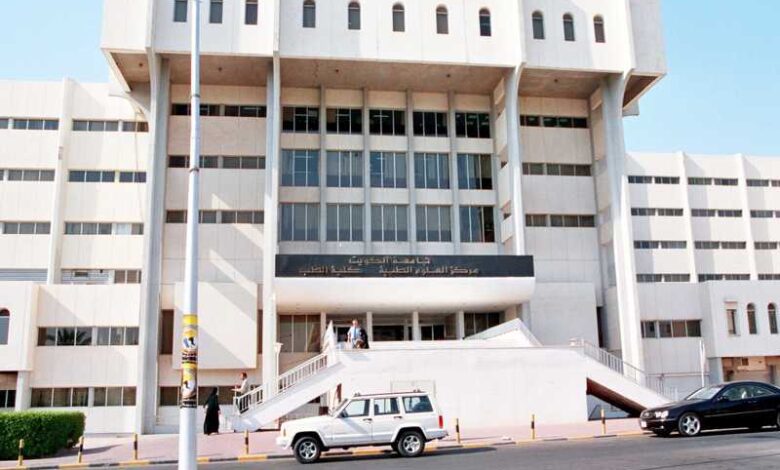Kuwait faces admission crisis with shortage of medical college seats
The available seats in medical colleges are raising concerns about a potential crisis in university admissions for the next academic year

-
The Deanship of Admission and Registration has proposed only 190 seats in the Faculties of Medicine and Dentistry, with 150 seats in the former and only 40 in the latter.
-
More than 40 years have passed since the College of Medicine accepted its first class, yet the number of accepted students remains low
-
The College of Medicine has more than 167 appointed professors, while the College of Dentistry includes 51 appointed professors, in addition to the seconded professors.
The university admission plan for the next academic year is signaling a crisis, particularly concerning admission seats in medical colleges.
As the Kuwait University Council convenes on Sunday afternoon to discuss the admission plan for the academic year 2024-2025, the available seats in medical colleges are raising concerns about a potential crisis in university admissions for the next academic year. The Deanship of Admission and Registration has proposed only 190 seats in the Faculties of Medicine and Dentistry, with 150 seats in the former and only 40 in the latter.
Informed sources have revealed that the low number of admission seats in medical colleges contradicts the rising number of students, leading to an increase in outstanding students. This situation also conflicts with the development plan and the country’s need for national medical personnel. Urgent action is required to increase these seats accordingly.
Fault detection
According to the sources, more than 40 years have passed since the College of Medicine accepted its first class, yet the number of accepted students remains low. This highlights the need to investigate the reasons behind the limited admission seats, which do not exceed 150 seats except in small numbers, barely reaching 20 additional seats.
Kuwait University statistics indicate that the College of Medicine has more than 167 appointed professors, while the College of Dentistry includes 51 appointed professors, in addition to the seconded professors.
At the same time, the sources stressed that the university administration must focus on effective planning to increase the number of seats without compromising the quality of education, ensuring it aligns with the number of faculty members in the two colleges.
The sources warned that if the available seats in the two colleges remain unchanged, many outstanding students would be denied admission to medicine and dentistry, similar to what happened last year. Students with grades of over 98% in high school were deprived of admission to the two colleges due to poor performance in planning and not increasing the number of available seats, despite their high equivalent grades (including aptitude tests).
Providing alternatives
The sources anticipated an increase in the number of students applying to the university next year, leading to more students wishing to enroll in medical specialties. This is especially expected after the Ministry of Higher Education’s decision to cancel medical scholarships in Egyptian and Jordanian universities, which is considered a worthwhile step to preserve the quality of medical education.
However, they also called for the necessity of providing alternatives to students, especially since their numbers are increasing and the demand for medical personnel is growing as well.
Former officials from the medical colleges revealed that the university plans to double the number of admissions to the colleges of medicine, dentistry, and pharmacy. This expansion is in line with the ambitious development plan to construct new hospitals and health buildings, achieved through a gradual increase in the number of seats in the medical colleges.
These officials stated that the goal was for admission seats to reach 300 in the College of Medicine, 120 in dentistry, and 250 in pharmacy.
They emphasized the availability of teaching staff for these numbers and the ease of providing study halls with Kuwait University’s move to its new buildings in Sabah Al-Salem University City. Furthermore, there are still unutilized buildings belonging to Abdullah Al-Salem University, which can be utilized in cooperation with the latter.
Officials called for avoiding overlapping dates for submitting applications for admission to higher education institutions this year. This measure aims to prevent outstanding students from losing opportunities to enroll in foreign scholarships, especially those who may not be accepted by Kuwait University due to the lack of sufficient seats, as was the case last year.
Three demands to avoid crisis
- Increase the number of admission seats.
- Meet the needs of the development plan.
- Provide alternatives for students.












